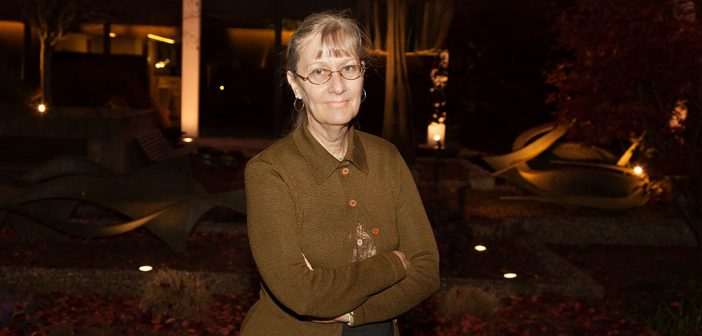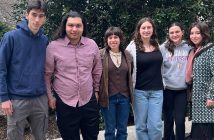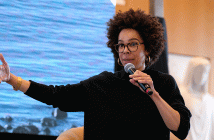After decades of working as an administrator in New York City schools, she decided to professionalize the work she had been doing in an unofficial capacity for years. In February, she will earn a Master’s of Social Work at the Graduate School of Social Service at Fordham’s Westchester campus.
“I saw what happened to vulnerable children,” she said. “I wanted to help prevent the problem rather than look for a quick fix.”
Blumenstock married into a family from an underserved neighborhood in the 1980s. She used Spanish as a way to communicate with her mother-in-law, and found that her bilingual skills were also an asset in working with others through the crack and AIDS epidemics that ravaged the city during the late twentieth century.
Her personal experiences at home and at work brought her face-to-face with the challenges facing alcoholic families, drug addicts, people with special needs, AIDS patients, and neglected or abused children.
“I found that no matter the problem, we were always fighting the same battle. You try to advocate for someone with a particular issue and then you fight same battle all over again for someone else with the same issue,” she said.
“Those experiences became the fuel for me to change careers. It just made me want to fight on a higher level. There are things that need to be solved on a social level rather than putting the onus on the person that’s suffering.”
She said she appreciated Fordham’s emphasis on human rights and social justice. She quickly acclimated to the rigorous leadership track and eventually found herself working as a graduate assistant to Janna Heyman, Ph.D., professor and Henry C. Ravazzin Chair in Gerontology.
Building on Heyman’s research, which evaluates the effects of bringing older adults in contact with children, Kelsey’s project focuses on bringing older adults in contact with young immigrant mothers and their children.
“These moms, especially the ones who don’t speak English, are incredibly isolated, since their husbands sometimes work six or seven days a week,” she said.
“We had been studying just two generations, the elderly and youth, and I think that by bringing seniors into contact with adults and with children, all three generations benefit.”
Blumenstock has actively pitched the program design to a senior center in Westchester and an agency serving at risk children, and hopes to continue lobbying for the program design after she graduates. For now she’s looking forward to finishing the semester and launching her new career.
“As of now, I’m a student,” she said. “But not for long.”



